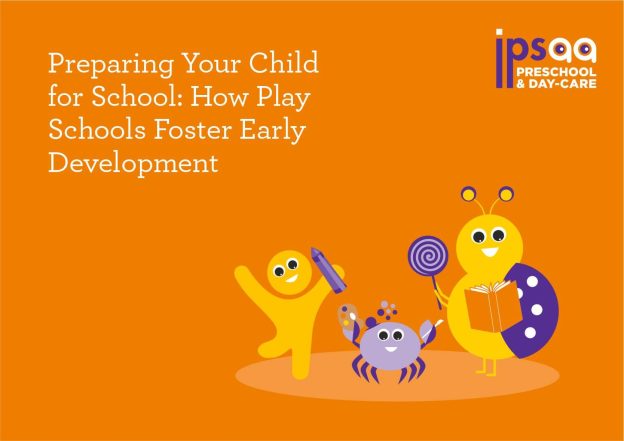As parents, we want the best for our children, especially when it comes to their education and development. The early years of a child’s life are crucial for setting the foundation for future learning and growth. Play schools, also known as preschools or pre-primary schools, play a vital role in preparing children for their formal education journey. In this blog, we will explore how play schools foster early development and help children transition smoothly into the world of school.
Social and Emotional Development:
Play schools create a conducive environment for children to interact with their peers and teachers, promoting social and emotional development. Through group activities, children learn valuable skills such as sharing, taking turns, and cooperating with others. For example, during group playtime, children may engage in building blocks together, learning to collaborate and communicate effectively.
Teachers also facilitate activities that encourage empathy and emotional understanding. They may use storytelling or role-playing to help children recognize and express their emotions. By encouraging children to empathise with characters or situations, play schools nurture emotional intelligence and promote positive social interactions.
Cognitive Development:
Play schools employ play-based learning strategies that stimulate cognitive development. Children engage in hands-on activities, experiments, and problem-solving tasks that encourage critical thinking skills. For instance, they may be presented with puzzles or building materials that require them to think creatively and find solutions.
Through play, children also develop their imagination and creativity. Play schools may provide various props, dress-up clothes, and art supplies, allowing children to explore different roles, create their narratives, and express their ideas.
Early literacy and numeracy skills are introduced through playful activities. Teachers may use storytelling sessions to enhance language skills and introduce new vocabulary. Similarly, counting games, sorting activities, and number recognition exercises help develop foundational math skills.
Language and Communication Skills:
Play schools create language-rich environments that promote language and communication skills. Teachers encourage children to express themselves verbally, ask questions, and engage in conversations. They may introduce new words, sentence structures, and grammar concepts through storytelling or group discussions.
For example, during circle time, children might share their experiences or engage in show-and-tell sessions where they communicate their thoughts and ideas to the group. This not only enhances their vocabulary but also improves their listening and speaking skills.
Play schools may also incorporate activities that foster language development, such as rhymes, songs, and poetry recitation. These activities help children develop phonological awareness, improve pronunciation, and enhance their overall language fluency.
Motor Skills Development:
Play schools focus on the development of both gross and fine motor skills. Gross motor skills are developed through physical activities like running, jumping, and balancing. Play schools often have outdoor play areas or dedicated gym sessions where children can engage in these activities.
Fine motor skills, on the other hand, involve precise movements of smaller muscles. Play schools offer opportunities for children to engage in activities like drawing, painting, and threading beads, which help improve hand-eye coordination and dexterity.
For example, during an art session, children may be given crayons and encouraged to draw freely. This activity not only allows them to express their creativity but also helps strengthen their fine motor skills as they learn to control the movement of their hands.
Independence and Self-Confidence:
Play schools encourage independence and self-confidence in children by providing them with age-appropriate responsibilities and choices. Children are given the opportunity to complete tasks independently, such as tidying up their play area or choosing their own activities.
Teachers also create a supportive environment where children feel comfortable expressing themselves and taking risks. For instance, during a show-and-tell session, children can share their favorite toy or talk about their hobbies, boosting their confidence in public speaking.
By allowing children to make decisions, take ownership of their actions, and experience the positive outcomes of their efforts, play schools instill a sense of independence and self-assurance in children.
Exposure to Diversity and Cultural Awareness:
Play schools often have a diverse student population, which exposes children to different cultures, traditions, and perspectives. This exposure helps children develop an appreciation for diversity and cultivates a sense of inclusivity.
Teachers may organize cultural celebrations or events where children learn about different festivals, customs, and traditions from around the world. They may read books or show videos that depict characters from diverse backgrounds, promoting understanding and respect for different cultures.
Through these experiences, children learn to embrace differences, develop empathy, and foster an inclusive mindset that prepares them for a multicultural society.
Love for Learning:
Play schools nurture a love for learning by making education enjoyable and engaging. They create a stimulating environment where children are motivated to explore and discover new things. Play schools often use age-appropriate games, puzzles, and interactive activities to capture children’s attention and make learning fun.
For example, a science-themed activity may involve conducting simple experiments like mixing colors or exploring the properties of water. Such hands-on experiences ignite children’s curiosity and foster a passion for scientific exploration.
Play schools also recognize and appreciate children’s efforts and achievements, boosting their self-esteem and reinforcing their love for learning. Celebrating small milestones, acknowledging their progress, and providing positive reinforcement contribute to creating a positive learning environment.
Conclusion:
Play schools play a vital role in fostering early development in children. By focusing on social and emotional development, cognitive skills, language and communication abilities, motor skills, independence, cultural awareness, and a love for learning, playschools set the foundation for a successful transition into formal schooling. By providing a nurturing and stimulating environment, playschools help children develop the necessary skills and attitudes for future academic and personal success. Visit https://ipsaa.in/ to prepare your child for early development.


